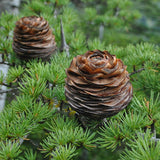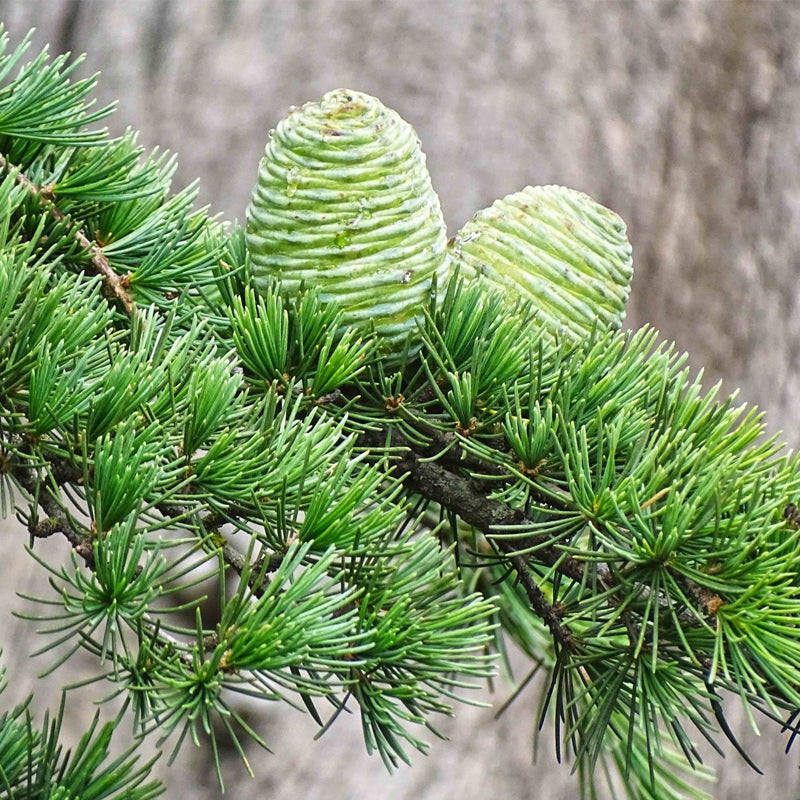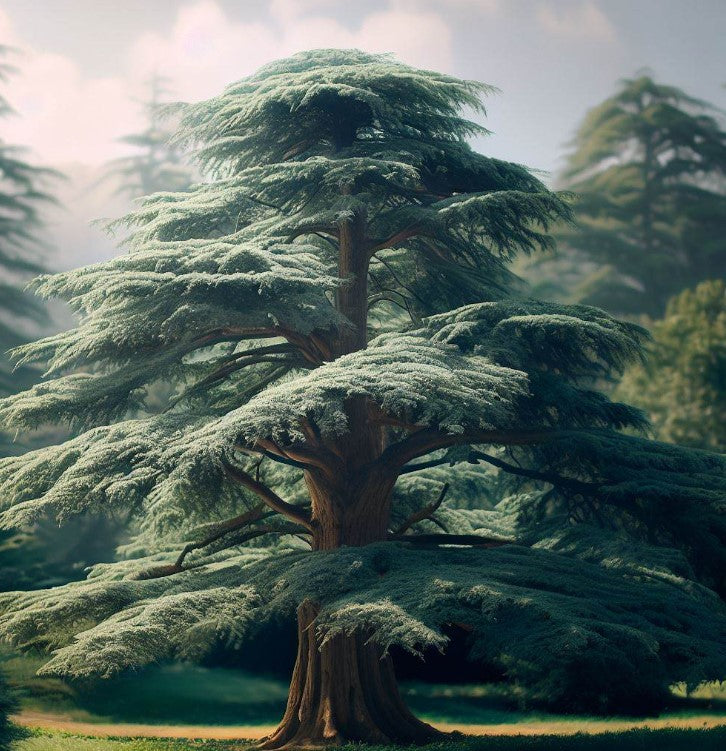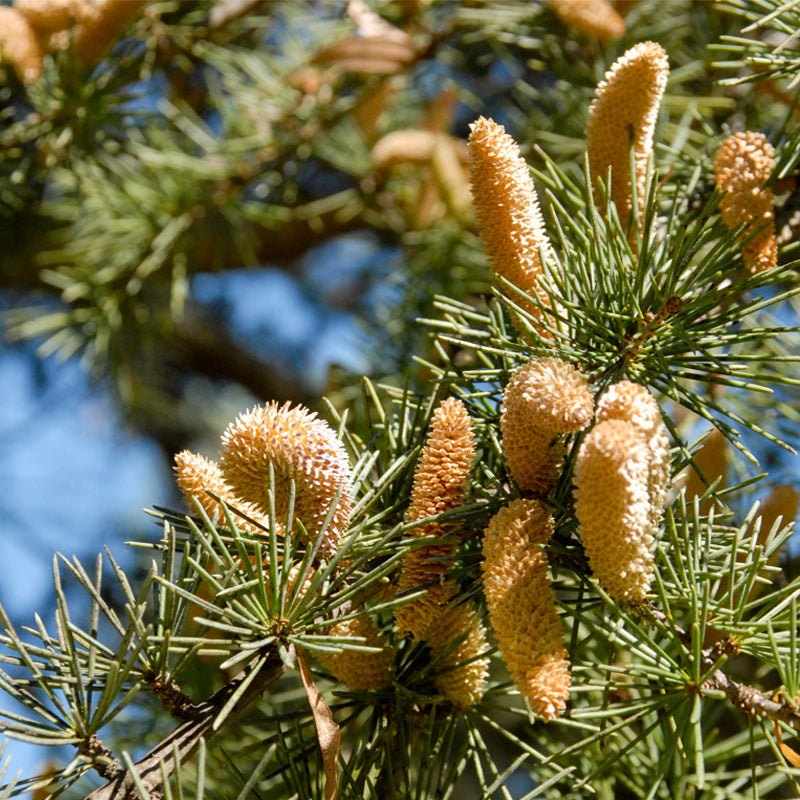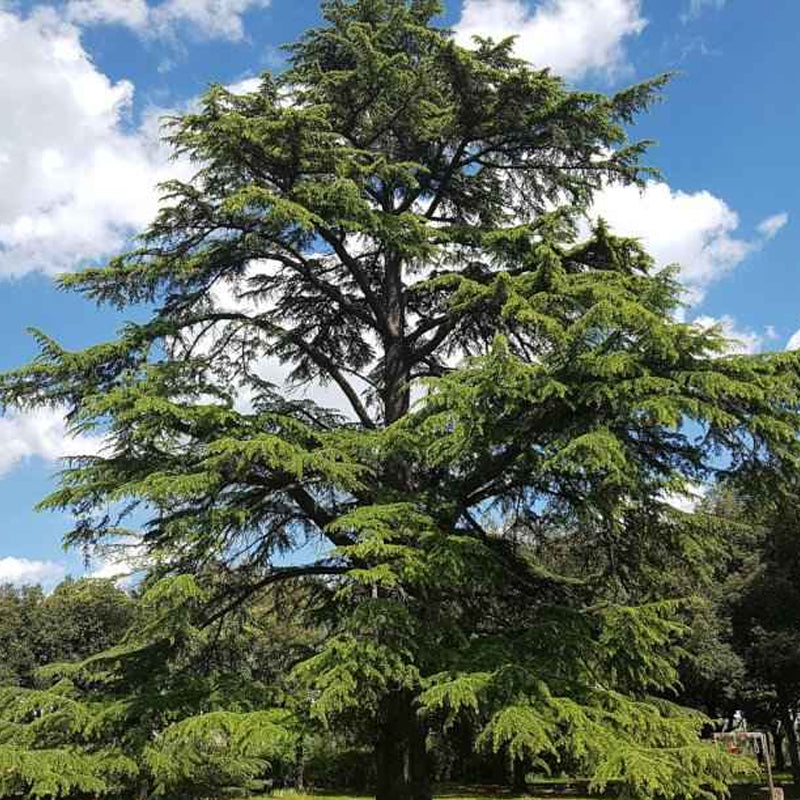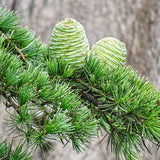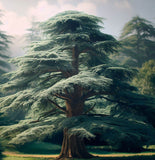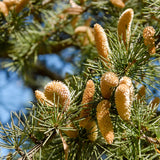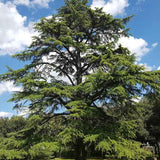Cedrus deodara (Deodar Cedar)
Cedrus deodara (Deodar Cedar): Seeking a low-maintenance, fast-growing evergreen to add a touch of elegance to your outdoor space? Consider the Deodar Cedar (Cedrus deodara), a stunning conifer renowned for its graceful, weeping habit and distinctive horizontal branches.
Cedrus deodara (Deodar Cedar) is a large evergreen coniferous tree native to the Himalayan region of India, Pakistan, and Afghanistan. The Deodar Cedar is a majestic tree with a conical or pyramidal shape and a straight trunk. It can reach heights of 130 to 200 feet (40 to 60 meters), making it one of the tallest cedar species. The tree has spreading branches that form a broad, open crown.The leaves are needle-like, ranging in color from bluish-green to dark green.
Bark: The bark of the Deodar Cedar is grayish-brown, smooth when young, and becomes rough and furrowed with age. The bark develops deep ridges and has a distinctive scaly texture.
Cones: The Deodar Cedar produces large, barrel-shaped cones that can grow up to 6 inches (15 centimeters) long. The cones start out green and turn brown as they mature. Each cone contains numerous winged seeds.
Habitat and Range: The Deodar Cedar is native to the Western Himalayas, where it is found at high altitudes ranging from 5,000 to 12,000 feet (1,500 to 3,600 meters). It prefers well-drained soil and is adapted to mountainous regions with cool, humid climates. The tree is often found in mixed conifer forests along with other conifer species.
Cultural Significance: The Deodar Cedar holds cultural and religious significance in the regions where it is native. It is considered a sacred tree in Hinduism and is often associated with Lord Shiva. The wood of the Deodar Cedar is highly valued for its durability and resistance to decay, making it sought after for construction, furniture, and carving.
Environmental Importance: The Deodar Cedar provides important habitat for various bird species and other wildlife in its native range. Its dense foliage offers shelter and nesting sites. The tree's extensive root system helps stabilize soil on slopes, preventing erosion and landslides.
Cultivation: The Deodar Cedar is widely cultivated as an ornamental tree in many parts of the world due to its elegant form and attractive foliage. It is well-suited for larger gardens and park landscapes. It prefers full sun and well-drained soil and is relatively tolerant of a range of climatic conditions.
Botanical Name : Cedrus deodara
Common Name : Deodar Cedar
Height : 40- 70 ft
Spread : 20- 40 ft
Germination Info : Seed requires 7-21 days cold moist stratification
Hardiness zone : 6-9
Average seed per ounce : Approx. 231
Germination Range: 60-70%

